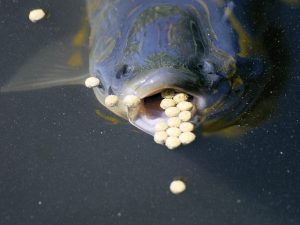Many of the hands-on skills required for farming the land aren’t too different from those needed to effectively farm the water. From welding and woodworking to plumbing and equipment maintenance, you probably already have a good grasp of these daily duties. However, equally important are business management skills.
Marketing, employee management, record keeping and most notably, finance, are key to the success of your aquaculture business. This is especially true in the current economic climate, where the costs associated with feed, farm inputs, and raw materials are only rising.
Therefore, it’s important that you frequently find ways to reduce your monthly overheads. It’s also worth noting that this should be done in a way that doesn’t negatively impact the wellbeing of your fish and the subsequent quality of your products. The good news is that there are many ways to achieve this.
Improve Your Management Processes
A well-managed farm can increase your bottom line while also supporting better biosecurity and feeding practices. Start by educating your employees on the importance of proper feeding. You should also obtain and analyze feeding table data to find the optimal ration sizes, feeding rates, and timing.
One more modern consideration is the implementation of automated feeding technologies. It’s no secret that they’ll require a potentially substantial initial investment, but what they can do in terms of cost savings on labor and feeding practices that result in poor water quality makes automation a worthwhile consideration.
Ensure a Nutritionally Balanced Feed
 On average, feed accounts for 50% to 70% of your operational expenses. However, price shouldn’t be the sole deciding factor when choosing feeds. Low-quality feeds will detriment your feed conversion ratio and increase your expenses in the long run. Consider factors such as efficiency, growth rate, digestibility, immune support and impact on water quality.
On average, feed accounts for 50% to 70% of your operational expenses. However, price shouldn’t be the sole deciding factor when choosing feeds. Low-quality feeds will detriment your feed conversion ratio and increase your expenses in the long run. Consider factors such as efficiency, growth rate, digestibility, immune support and impact on water quality.
Utilize Technology
There are many ways to save money in your aquaculture business with technology. For instance, you can implement recirculating agriculture systems (RAS) to improve the control you have over your farm’s environment. RAS systems also reduce the number of contaminants in the water that weaken your livestock’s immune systems.
This will contribute to a healthier and more productive farm. You can also use online tools to compare prices. For instance, you can compare different water suppliers on Utility Bidder. Head over to https://www.utilitybidder.co.uk/ to learn more about how you can reduce one of your highest monthly expenses.
Optimize Water Quality
Optimal water quality is absolutely essential to the cultivation of your fish. Improper maintenance can result in lower output, poor growth and an increase in disease.
The most important way to optimize your water quality is to pay less attention to protein content and more to protein utilization. Better digestibility will lead to less protein and mineral excretion – waste that contains potentially harmful amounts of ammonia and nitrogen.
Aside from aquaculture-focused improvements, you should also consider implementing as many general cost-savings measures that apply to all businesses as possible. From lowering your resource usage to utilizing time-saving software in the office, to improving your marketing strategy, the opportunities are endless.



